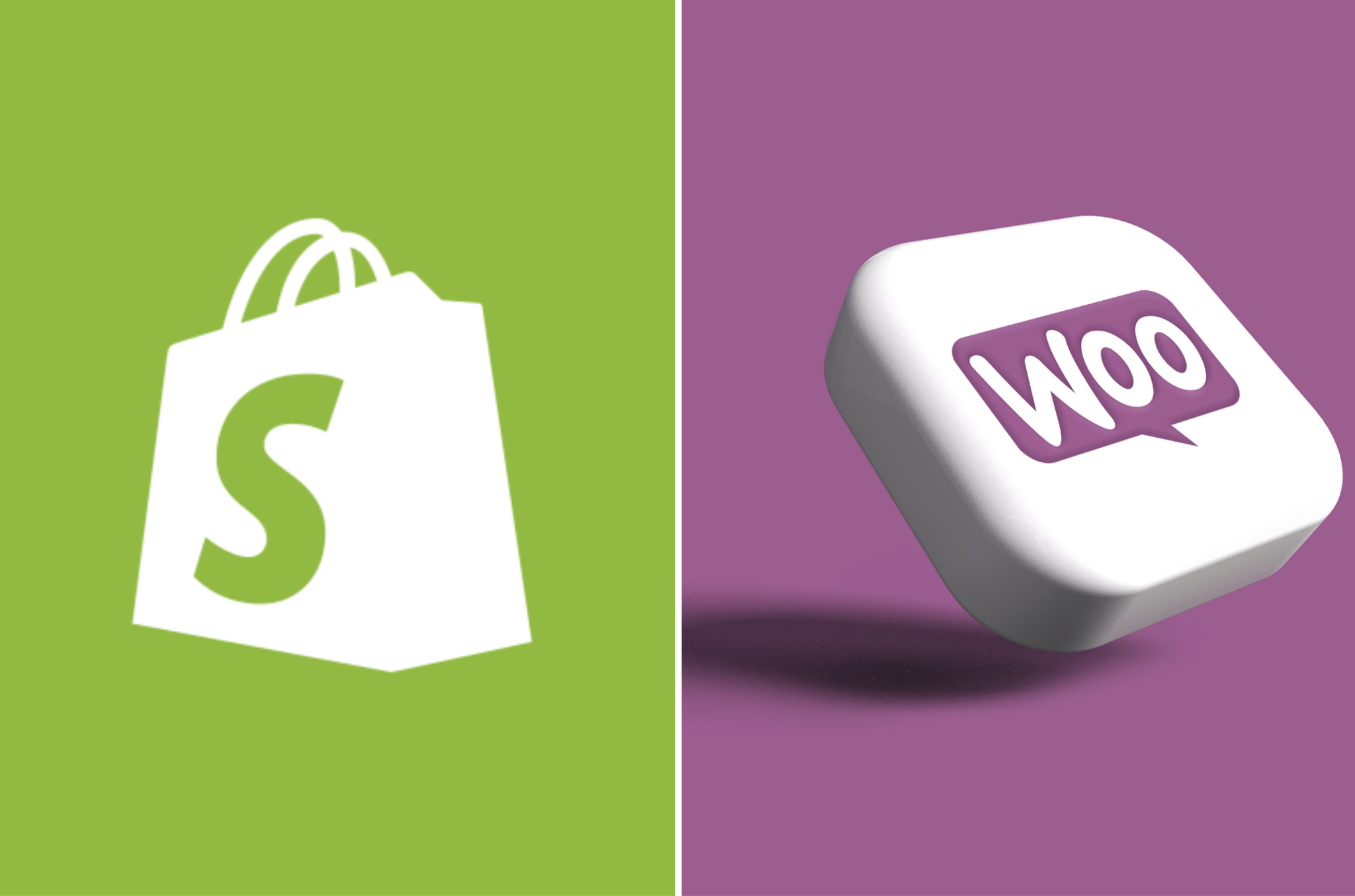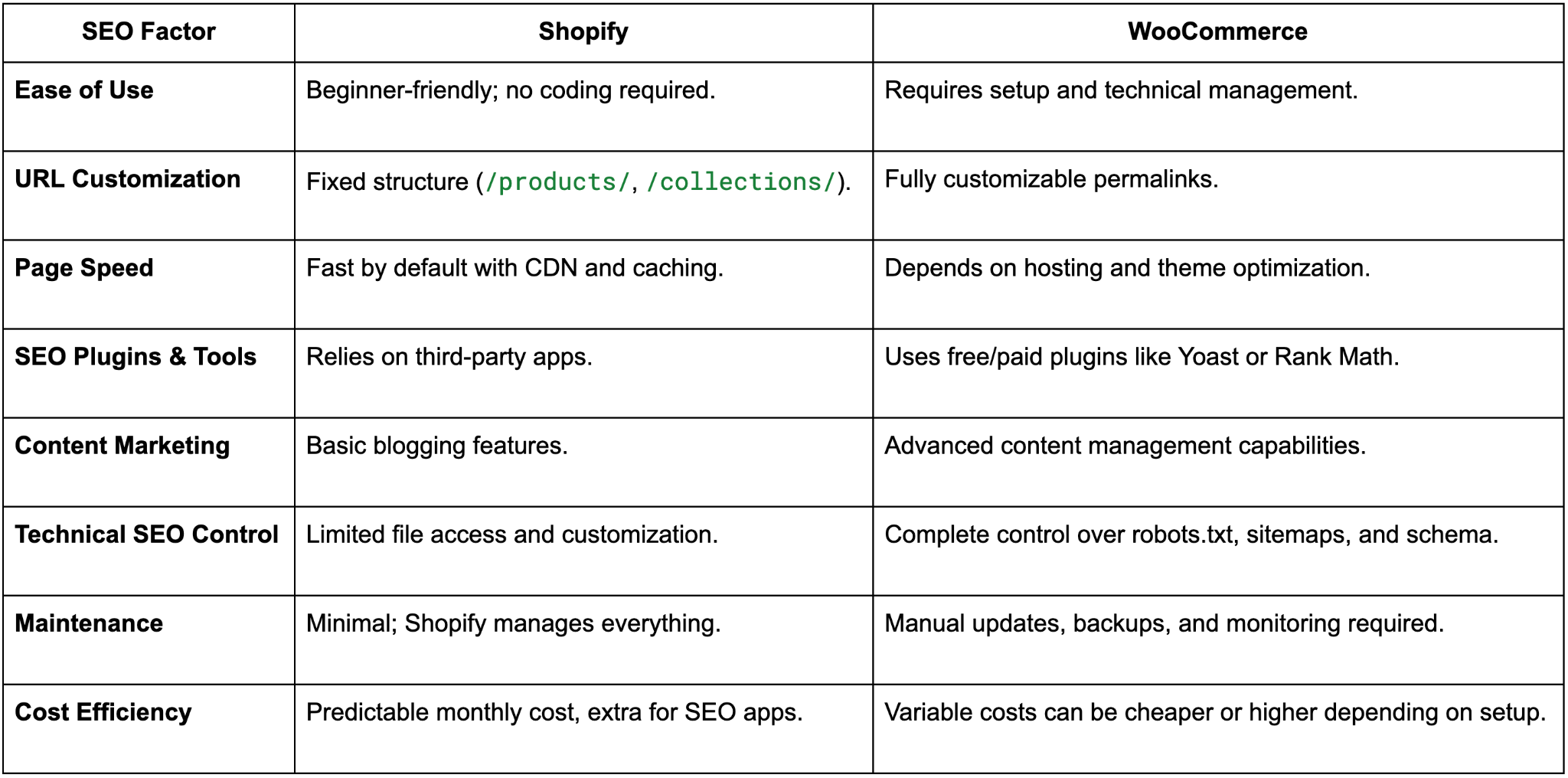
Choosing the right eCommerce platform is not only about design or product management, but it’s also about how well your store can rank on search engines. Shopify and WooCommerce are two of the most popular platforms for online businesses, but when it comes to SEO performance, their differences go far beyond looks and usability.
Both platforms offer strong tools to optimize your store, but their SEO power depends on your goals, level of technical skill, and how much control you need over your site. In this article, we’ll compare Shopify vs WooCommerce SEO across multiple factors, technical setup, on-page optimization, content flexibility, and long-term scalability, to help you decide which one can rank better for your business.
Search Engine Optimization (SEO) is the process of improving your website so it appears higher in search engine results for relevant keywords. For eCommerce, SEO is crucial because it directly affects visibility, traffic, and sales. A higher ranking on Google means more potential customers discover your products without paid ads.
When comparing Shopify and WooCommerce, SEO involves evaluating how each platform handles:

Shopify is a hosted eCommerce platform, meaning everything, hosting, security, and performance, is managed for you. This all-in-one setup gives Shopify stores a strong SEO foundation from day one, even for users with limited technical knowledge.

WooCommerce is a WordPress plugin that turns your WordPress site into an online store. Because it’s self-hosted, you have full control over every SEO element, from technical optimization to advanced content strategies. However, that flexibility comes with more responsibility.

In practice, Shopify stores often rank faster in the early stages because the platform simplifies optimization. Its technical SEO foundation, mobile-friendly design, and stable performance help businesses see early organic traction without needing developers.
On the other hand, WooCommerce stores tend to dominate in the long term when managed properly. Its flexibility enables in-depth content marketing, precise keyword targeting, and technical customization that can surpass Shopify’s limitations. For content-driven eCommerce or niche product stores, WooCommerce is usually the superior long-term SEO choice.
However, success on either platform depends largely on how SEO is executed. Poorly optimized Shopify stores can underperform just as easily as neglected WooCommerce sites.
Ultimately, neither Shopify nor WooCommerce automatically ranks better—each has strengths that fit different business needs.
In short:
Your ranking success will depend less on the platform itself and more on how well you implement SEO best practices, site structure, content quality, backlinks, and technical performance.
The battle between Shopify vs WooCommerce for SEO isn’t about which platform is objectively better, but it’s about which aligns with your strategy and capabilities. Shopify’s strength lies in effortless setup, fast performance, and built-in technical SEO support. WooCommerce, meanwhile, empowers experienced users to fine-tune every element for deeper SEO impact.
If you’re launching your first online store and want reliable, consistent results, Shopify is your best bet. But if you aim to build a content-driven brand that grows organically and you’re comfortable handling the technical aspects, WooCommerce can take you further.
Either way, the key to ranking higher lies not just in the platform, but in the strategy and execution behind your SEO efforts.


Social proof only works when it feels like a natural reflection of real customer behavior, not a marketing trick. This article breaks down how to use social proof in a way that feels genuine, credible, and persuasive, without ever crossing into “fake” territory.
This guide breaks down how to write product page headlines that don’t just sound good, but actually move shoppers closer to buying.
Ethical CRO is not about rejecting optimization or persuasion altogether. Instead, it’s about redefining how conversions are achieved, by prioritizing transparency, respect, and long-term trust over quick wins. In this article, we’ll explore what Ethical CRO truly means, why it has become essential in modern digital marketing, and how businesses can apply it without sacrificing results.